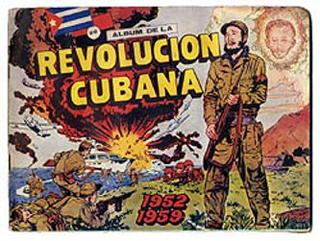
While arguing that Cuban model is one of the best alternatives present for the third world, this is one argument that I have come across the most. “If Cuba is such a heaven, then why does ship loads of people escape to United State?”
L. S. Stavrianos in his book, “Global Rift: Third World Comes of Age”, have also asked similar questions to himself. His questions are, “Does it [exodus] not substantiate the view of the Castro regime as a “totalitarian dictatorship” repressing a “captive people” ever ready to take the first available “freedom flight”?
Lets first of all take a look at the people who migrate in the mass exodus of 1980. A survey by the U.S. Immigration and Naturalization Service (INS) of the first 15,000 émigrés who arrives in April and May disclosed that only 15 percent were black or mulattos, though they comprise 30 to 40 percent of Cuban population. Also, only 15 to 20 percent of the émigrés were from the countryside, as against the 35 percent of the Cuban population that is rural. These figures explain the claim that it is the nonwhite and rural population of the Cuban Society that has made the greatest gains under the revolutionary government. This majority segment of the society was the bottom of the society before the revolution of 1959.
Also illuminating was the contrast between the Cuban and Haitians boat people who landed simultaneously on the Florida beach. The Haitians were generally uneducated, under nourished and unemployed. The left their homeland because their basic needs were not being met. The Cubans, on the other hand, were educated, healthy and employed. The left their homes because of monotonous diet, inadequate housing and limited supplies of clothing and other consumer goods.
The 1980 Cuban exodus was sparked more by the lure of consumerism than by the failure of communism. The American life-style was promoted through effective means of propaganda such as radio and television. The message was persuasive as personal comforts and advancement remained important than collective welfare and goals for many people.
Fidel Castro reacted with his two policies: more stress on material incentives, and correction of bureaucratic abuses and high living. Castro introduced a new salary policy on July 1, 1980, that substantially increased the minimum earnings for Cuban workers with some extra benefits. He also attacked Cuban officials for “using and abusing the prerogative that go with the post and the resources of their enterprise to solve problems of their own and their friends.” It is worthwhile to know that instead of ignoring, Fidel Castro learnt from the events like the exodus and used the lesson for the betterment of the Cuban people and society.
Peter Winn of Yale University said about the 1980 exodus, “If they can confront the current crisis with the same critical and innovative spirit, then the loss of even several hundred Cubans may be more than compensated by the gains of strengthened revolution that the émigrés leave behind.”

No comments:
Post a Comment